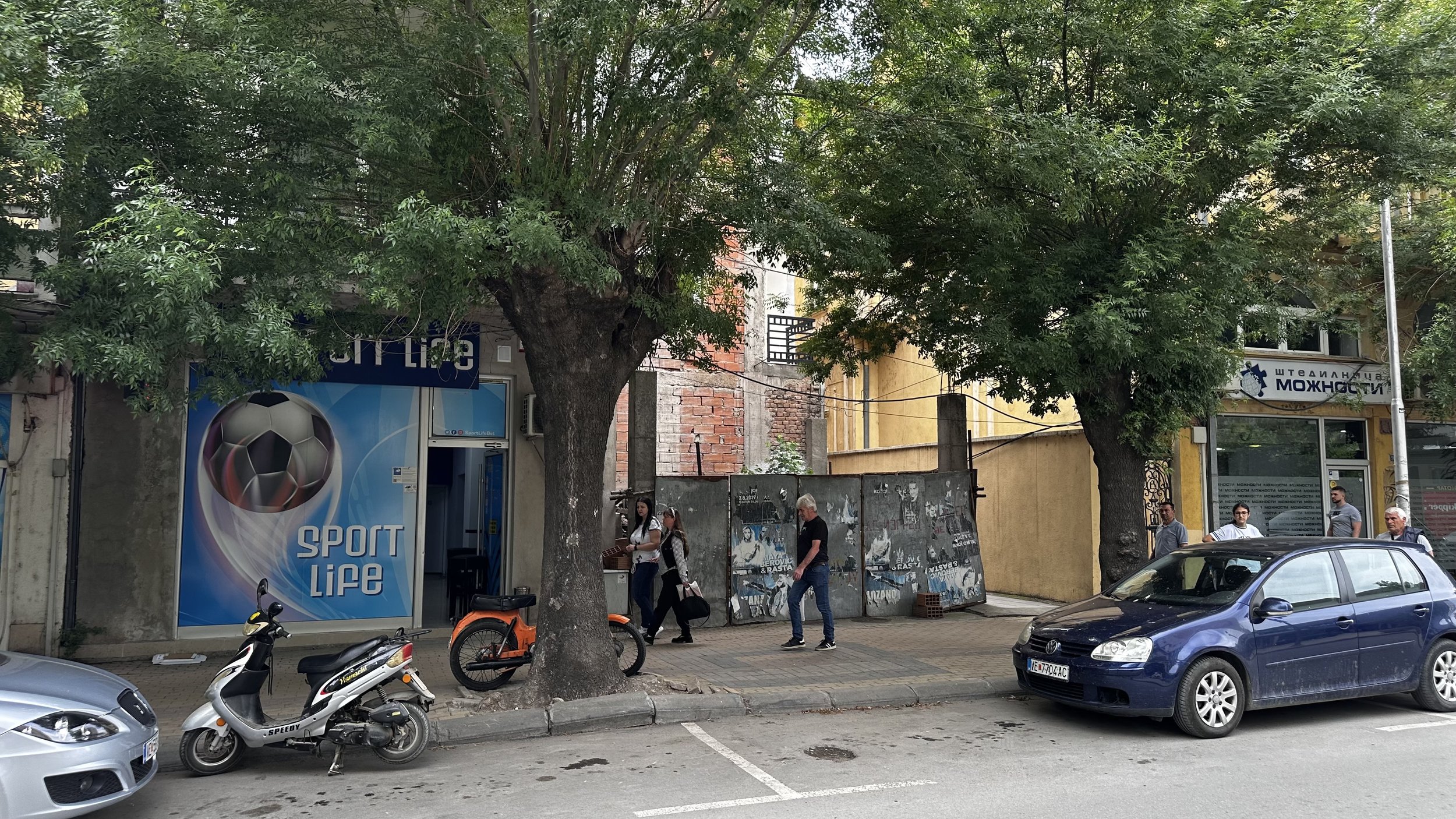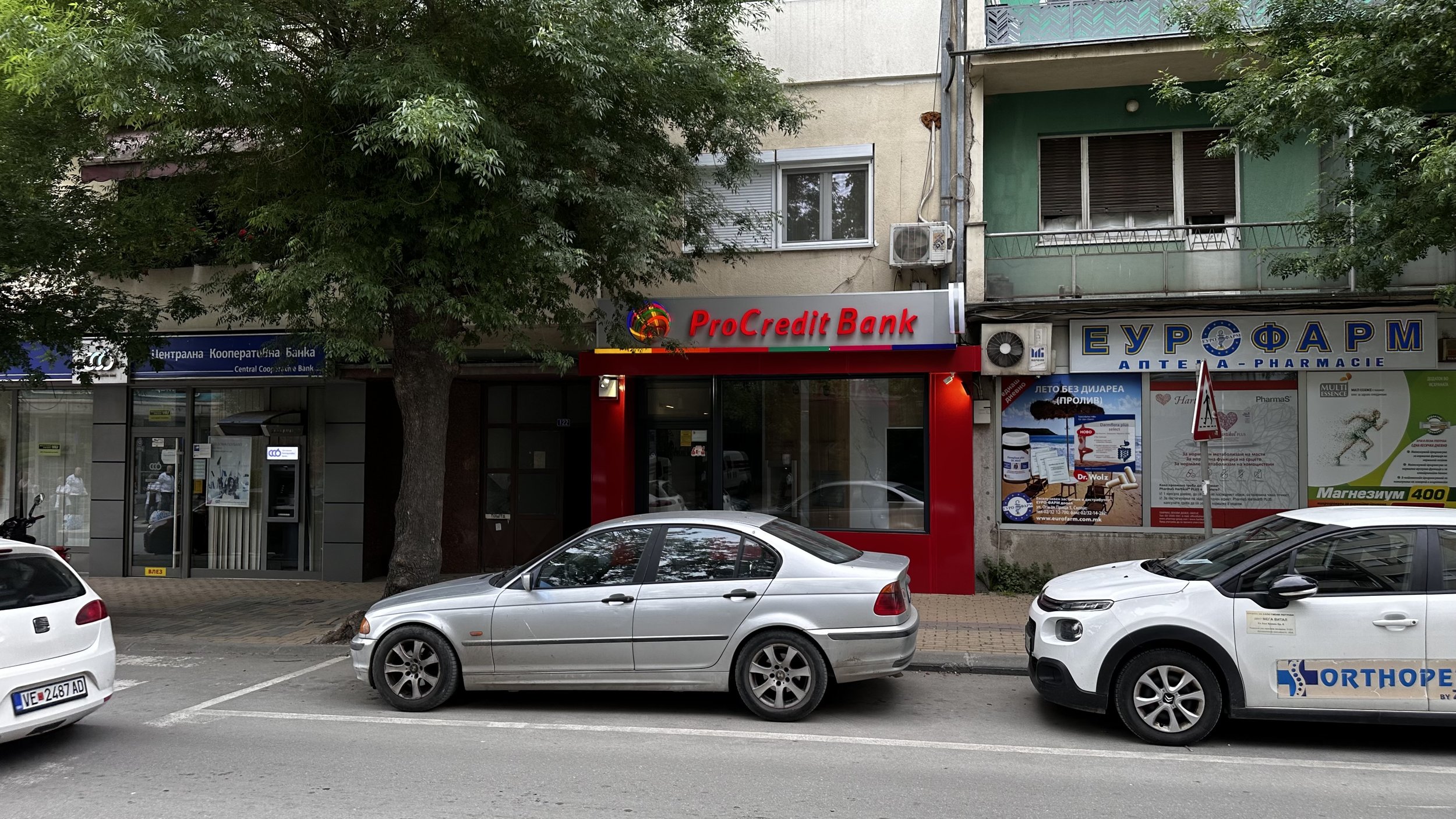Veles – A Stop in a Parallel Reality
Unexpected stopover in Veles, North Macedonia — a raw look at post-transition urban life, gambling economies, and the visual contradictions of a city caught between past industry and present precarity.
On my way back to Switzerland, I stopped in Veles — not by plan, but out of curiosity. What awaited was not the charming chaos of Balkan hospitality, but a visual dissonance, an almost surreal constellation of economic struggle, architectural fatigue, and relentless gambling infrastructure.
The old socialist housing blocks dominate the skyline with an unyielding presence, their concrete walls weathered, patched, and indifferent. Below them, rows of low-rise buildings line the streets — small shops behind dusty glass, handwritten signs offering used mobile phones, plumbing tools, or bread rolls. Between them, the same pattern repeats: a “Sport Life” betting studio, then a loan office, then another casino. One corner had a bank, a loan shark, and two betting shops within ten meters — not by coincidence, but by design. It’s an ecosystem feeding on hope, boredom, and economic precarity.
















Veles is no village. It’s a city of nearly 40,000, once a centre for ceramics, textiles, and industrial production under Yugoslavia. But the 1990s transition hit hard. Factories closed, jobs evaporated, and what filled the void wasn’t renewal but a kind of systemic stagnation. Today, its economy limps between small-scale trade, remittances from abroad, and — visibly — the betting industry. North Macedonia’s GDP per capita remains among the lowest in Europe; youth unemployment is high; corruption perception is persistent. All of that shows in the town’s texture: crumbling balconies, improvised plumbing, countless cables hanging like spiderwebs.
And yet, life pulses. A market operates out of vans. Men sit on benches doing nothing — a ritual in itself. Somewhere behind the façades, coffee is brewed, burek sold, lives lived. But the juxtaposition is jarring: a dilapidated street hosting not just one casino, but multiple; not just one betting parlour, but a network. The city doesn’t hide it — it’s become part of its core infrastructure.
This isn’t quaint. It’s not edgy. It’s raw. Veles doesn’t perform for tourists. It doesn’t explain itself. And maybe that’s what makes it linger. It confronts you with an honest view of a society in economic limbo, caught between past collapse and future uncertainty — and the visible mechanisms people use to cope, survive, or hope for a quick win.
Out There > Motorhome Trip Spring 2025 Balkans and Greece > Veles, North Macedonia


